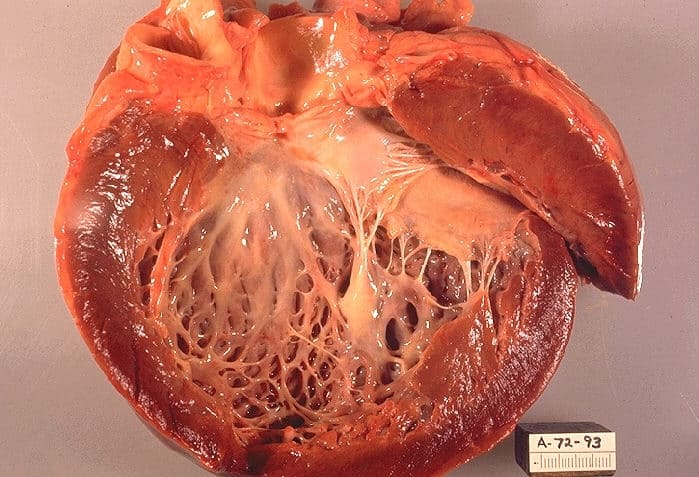
Pediatric Cardiomyopathy
Cardiomyopathy is a group of diseases that affect the heart muscle. Early on there may be few or no symptoms. As the disease worsens, shortness of breath, feeling tired, and swelling of the legs may occur, due to the onset of heart failure. An irregular heart beat and fainting may occur. Those affected are at an increased risk of sudden cardiac death.Types of cardiomyopathy include hypertrophic cardiomyopathy, dilated cardiomyopathy, restrictive cardiomyopathy, arrhythmogenic right ventricular dysplasia, and Takotsubo cardiomyopathy (broken heart syndrome). In hypertrophic cardiomyopathy the heart muscle enlarges and thickens. In dilated cardiomyopathy the ventricles enlarge and weaken. In restrictive cardiomyopathy the ventricle stiffens.In many cases, the cause cannot be determined. Hypertrophic cardiomyopathy is usually inherited, whereas dilated cardiomyopathy is inherited in about one third of cases. Dilated cardiomyopathy may also result from alcohol, heavy metals, coronary artery disease, cocaine use, and viral infections. Restrictive cardiomyopathy may be caused by amyloidosis, hemochromatosis, and some cancer treatments. Broken heart syndrome is caused by extreme emotional or physical stress.Treatment depends on the type of cardiomyopathy and the severity of symptoms. Treatments may include lifestyle changes, medications, or surgery. Surgery may include a ventricular assist device or heart transplant. In 2015 cardiomyopathy and myocarditis affected 2.5 million people. Hypertrophic cardiomyopathy affects about 1 in 500 people while dilated cardiomyopathy affects 1 in 2,500. They resulted in 354,000 deaths up from 294,000 in 1990. Arrhythmogenic right ventricular dysplasia is more common in young people.
Read More About Pediatric Cardiomyopathy

